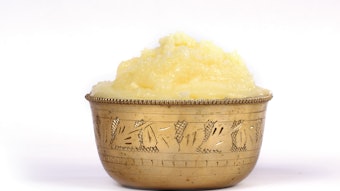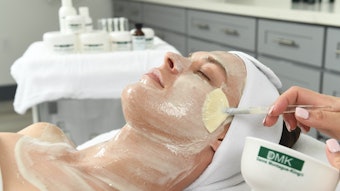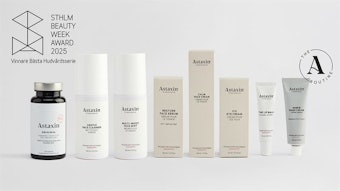
One of the goals of skin care is to help people put their “best face forward.” However, recent surveys have shown that 60-70% of women and 50-60% of men claim some degree of skin sensitivity such as stinging, burning and tingling, at levels ranging from “very” to “slightly.” In fact, over the past 20 years, researchers have concluded that over half the general population consists of people with sensitive skin.1
Why so many? The reason is probably because the face is typically exposed to a greater degree to significant changes in the weather, environmental stressors, high-energy light from tech devices and more. The increasing number of individuals suffering from skin sensitivity provides challenges in the skin care realm. How can a technologically advanced, healthy aging skin care product transform skin without triggering skin irritation?
Skin care formulators must balance potency of active ingredients with compatibility to skin. The goal is to boost bioavailability and effectiveness, which will provide visible results without triggering skin irritation.
The solution? Biofermentation. One way to achieve this balance is by incorporating biofermented ingredients into skin care.
Enhanced Absorption & Benefits
In short, fermentation is a natural metabolic process where microorganisms like bacteria or yeast break down organic substances into simpler compounds. Initially used as a means to preserve food, this age-old technique has found its way into technological advances in the skin care world due to fermentation’s ability to enhance the absorbability, potency and efficacy of key ingredients.
Fermentation is triggered when yeast or bacteria break down an ingredient, like cracking a jigsaw puzzle into little pieces. In this process, yeast or bacteria produce smaller particles, such as lactic acid, kojic acid, amino acids, enzymes and omega fatty acids. In skin care, these smaller compounds have a high biocompatibility with skin. They absorb into skin more effectively and result in maximized skin benefits, with a minimized risk of skin irritation.
Carefully formulated skin care products that contain fermented ingredients can benefit almost any skin type or condition, and can be especially helpful with individuals who are challenged with inflammatory skin conditions such as rosacea, acne or eczema. The following are benefits that can impact a wide range of clients.
Related: The Benefits of Fermented Skin Care
Gentle Exfoliation
Certain fermented ingredients, like those derived from fruits, offer natural exfoliation. This gentle removal of dead skin cells promotes cell turnover, revealing a smoother and more radiant complexion.
Skin Soothing
Certain fermented ingredients, such as chamomile and licorice root, possess enhanced anti-inflammatory properties, making them invaluable for calming sensitive, sensitized and irritated skin.
Solution for Blemish-Prone Skin
Fermented topical ingredients in skin care can soothe sensitive, sensitized, and blemish-prone skin. By encouraging the appropriate pH balance, biofermentation in skin care can improve hydration and minimize irritation that can sometimes occur due to harsh acne products.
Support for Dry Skin
Formulations with fermented ingredients also help maintain a more stable microbiome on the surface of the skin. A balanced microbiome supports skin’s natural protective barrier, helps alleviate dryness or excess oiliness and minimizes the risk of inflammation. This support is crucial for skin health and resilience against environmental aggressors.
Defense From Outside Stressors
A well-balanced, anti-aging skin care formula containing fermented ingredients can help protect against free radical damage and signs of oxidative and environmental stressors, all of which can lead to visible signs of aging, like wrinkles, sagging and dark spots.
Anti-Aging Team Players
Fermented ingredients that are included in anti-aging skin care can increase the potency of vitamins, antioxidants, peptides, and growth factors, which will help brighten dull skin, even out skin tone, inhibit melanin synthesis, target dark spots, and encourage collagen synthesis, all with minimal risk of skin irritation.
Fermentation Heroes
The following fermented skin care ingredients can be found on ingredient lists of highly effective toners, masks, serums, creams, and other formulations treating and alleviating a wide range of skin conditions and concerns.
Red Ginseng. Ginseng is a powerhouse in traditional Asian medicine. Studies have shown that fermented red ginseng has a greater concentration of antioxidants and is highly effective for brightening, reducing toxins, and reducing fine lines and wrinkles. Red ginseng ferment also has high levels of antioxidants and polyphenols, which improve microcirculation and reduce inflammation.
Black Tea. Fermented black tea, also known as kombucha, is an ideal ingredient in formulations that relieve inflammation and improve the skin barrier. Like other antioxidants, kombucha works as a type of “shield” to help defend skin from damage due to environmental stressors.
Licorice Root. Licorice root has long been valued for its anti-inflammatory and skin-soothing properties. Fermentation amplifies these benefits, making licorice root an excellent choice for calming sensitive skin and addressing issues like redness and irritation.
Minerals. Some anti-aging products feature mineral extracts that are fermented in yeast, such as saccharomyces copper ferment, zinc ferment, magnesium ferment and manganese ferment. The fermentation process converts the minerals into a form that can absorb better into the skin to encourage collagen synthesis, enhance tissue repair, and reduce signs of environmental damage, such as wrinkles, sagging and hyperpigmentation.
Argan Oil. Fermentation increases the bioavailability of essential fatty acids, antioxidants, and vitamins in argan oil to help moisturize and condition mature skin. Fermented argan oil is also beneficial for the scalp when used in hair treatments.
Radish Root. Radish root ferment, derived from bacteria traditionally used in making kimchi, moisturizes skin and helps relieve inflammation, while helping protect skin from free radical damage.
Rice Bran. Renowned for its brightening properties, fermented rice extract is a multi-tasker in skin care formulations. The fermentation process enhances the production of kojic acid, promoting an even skin tone, inhibiting melanin synthesis and reducing the appearance of dark spots. Fermented rice boasts over a dozen amino acids to moisturize and soothe sensitive, sensitized or blemish-prone skin.
Soy. Soy is rich in antioxidants and amino acids. Through fermentation, these components become more bioavailable, helping nourish and rejuvenate the skin. Fermented soy is particularly effective in promoting collagen production, aiding in firmness and elasticity and can also assist in skin brightening.
Seaweed. Seaweed is a great source of minerals, amino acids and antioxidants. Fermentation enhances the absorption of these nutrients, delivering a surge of hydration to the skin. This marine-inspired ingredient not only moisturizes, but also helps maintain skin elasticity and firmness.
Chamomile. Chamomile, well-known for its calming properties, becomes an even more effective remedy for sensitive skin when fermented. The anti-inflammatory benefits are heightened, offering relief to skin prone to redness and irritation.
Ferm It Up
Ever-increasing levels of significant changes in the weather, environmental stressors, high-energy light from tech devices and even daily life stressors can wreak havoc on the skin. As a result, consumers need treatments that benefit skin without causing inflammation. It’s also important to keep in mind that over-exfoliating or over-using peels might lead to skin sensitization and chronic inflammation. Skin needs balance, and fermented ingredients can help. As the beauty industry continues to evolve, products that incorporate biofermented ingredients can help maximize the power of in-spa services, increase the benefits of homecare and keep satisfied clients coming back for more.
The bottom line is that embracing the power of fermentation is one of the many keys to unlocking a radiant and healthy complexion. Think of it as “beauty alchemy;” nature in sync with skin.
References:
Founder and CEO of Le Mieux Cosmetics and PurErb, Janel Luu has over 40 years of experience in the beauty industry as an educator, researcher and formulator. She has taught over 40,000 skin care professionals and physicians on topics ranging from the latest anti-aging cellular technology to centuries-old meridian gua sha techniques.











